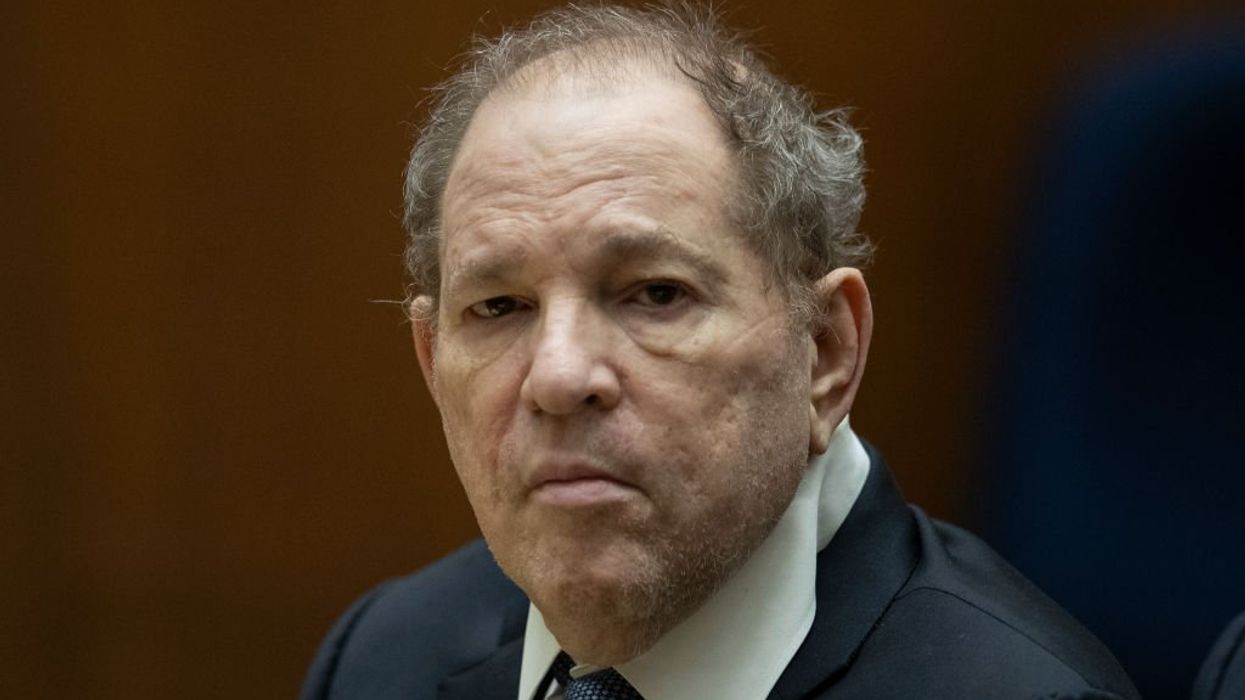
Photo by Etienne Laurent-Pool/Getty Images

Disgraced former Hollywood producer Harvey Weinstein scored a major legal victory on Thursday when an appellate court in New York overturned his rape convictions from 2020.
In February of that year, Weinstein was convicted of first-degree criminal sexual assault in connection with former "Project Runway" production assistant Miriam Haley and third-degree rape in connection with once-aspiring actress Jessica Mann. Though acquitted of three other charges, he was ultimately sentenced to 23 years in prison.
Haley and Mann both testified at trial, but they were not the only alleged victims to do so. Other women also took the stand as Molineux witnesses, or witnesses who help establish a defendant's pattern of behavior. Weinstein was not charged with any crimes against these women, but his defense team still had to cross-examine these witnesses based on their allegations of sexual misconduct.
In appealing Weinstein's convictions, his lawyers argued that the testimony and cross-examination of the Molineux witnesses was unfairly prejudicial against the defendant.
The New York Appeals Court has since agreed. In a narrow 4-3 decision, the court ruled to overturn the convictions in this case.
The appeals court claimed that Judge James Burke, who oversaw Weinstein's trial, made a critical "error" in allowing into testimony "irrelevant, prejudicial, and untested allegations of prior bad acts."
The majority also seemed to take aim against Molineux witnesses more broadly, claiming that "the accused has a right to be held to account only for the crime charged and, thus, allegations of prior bad acts may not be admitted against them for the sole purpose of establishing their propensity for criminality."
"At trial, a defendant stands to account for the crimes as charged. Proof of prior crimes and uncharged bad acts are the rare exception to this fundamental rule of criminal law."
The three dissenting judges addressed the issue of Molineux witnesses directly, lamenting that this ruling could ultimately bring the use of Molineux witnesses in sexual assault cases to a swift end.
But the minority justices especially took issue with the majority's "fundamental misunderstandings of sexual violence" committed by powerful men. In fact, the minority practically insulted their panel colleagues, suggesting in their dissenting opinion that the majority may not actually strive for justice in sexual assault cases.
"By ignoring evidence of defendant's manipulation and premeditation, which clouded issues of intent, and by failing to recognize that the jury was entitled to consider [Weinstein's] previous assaults, this Court has continued a disturbing trend of overturning juries' guilty verdicts in cases involving sexual violence," the dissenting opinion said.
Juda Engelmayer, a spokesperson for Weinstein, claimed to be "cautiously excited" about the ruling but also noted that Weinstein "still has a long road ahead of him."
Indeed, he does. For starters, the overturned convictions do not let Weinstein, now 72, off the hook for the alleged assaults against Haley and Mann. It just means he will have a new trial, should Manhattan District Attorney Alvin Bragg opt to retry him. Bragg claims he will, so long as the victims agree to testify again.
"We will do everything in our power to retry this case and remain steadfast in our commitment to survivors of sexual assault," Bragg said.
Secondly, Weinstein still remains behind bars because he was convicted of rape and sexual assault in 2022 in a separate case in Los Angeles. He was sentenced to serve 16 years for those crimes.
However, Douglas Wigdor, who represents eight Weinstein victims, including the Molineux witnesses, still sees the appellate ruling as "tragic" and a "major step back" for victims of sexual assault.
"Courts routinely admit evidence of other uncharged acts where they assist juries in understanding issues concerning the modus operandi or scheme of the defendant. The jury was instructed on the relevance of this testimony, and overturning the verdict is tragic in that it will require the victims to endure yet another trial," he said.
Like Blaze News? Bypass the censors, sign up for our newsletters, and get stories like this direct to your inbox. Sign up here!